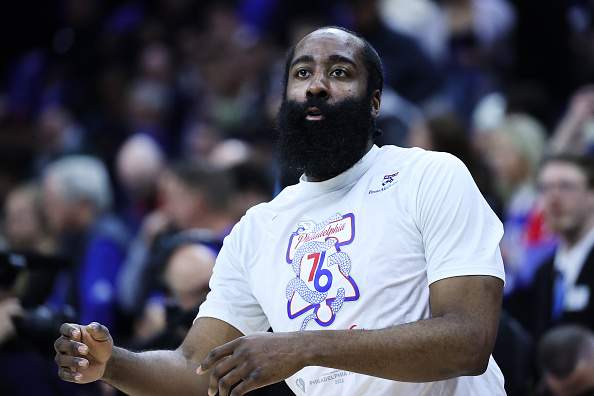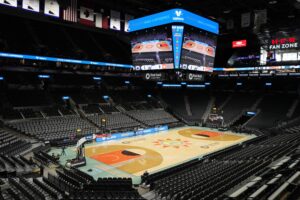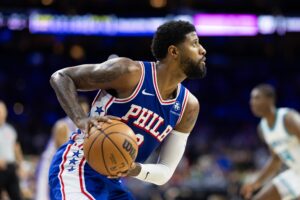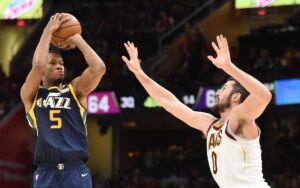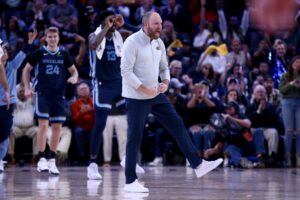In an offseason full of major stories, the NBA’s tampering investigations into the Philadelphia 76ers and New York Knicks have taken center stage. The Knicks are under scrutiny surrounding the four-year, $104 million deal signed with Jalen Brunson this summer. The league is also looking into the 76ers negotiations with James Harden. Tampering has been a recurring issue in the NBA, with many players and pundits viewing it as a ‘victimless crime.’ This begs the question, should the NBA revisit its tampering policy?
Should the NBA Tampering Policy be Revisited?
The New York Knicks Situation
New York began the 2022 offseason with a blockbuster deal, landing Brunson to the four-year deal mentioned previously. More impressive, or in this case, suspect, was that the Knicks inked the deal only hours into the beginning of free agency on June 30th. On top of this, the Knicks recently hired Brunson’s father, Rick Brunson. He was hired as an assistant coach earlier that month, on June 2nd. The elder Brunson has experience as an NBA assistant, with stints in Denver, Chicago, Charlotte, and Minnesota. His most recent run with the Timberwolves ended in 2018. Brunson coached Camden High from 2019-2022. All that to say that while it isn’t unreasonable to argue that New York hired Brunson’s father as a way to lure the point guard, it’s probably going to be hard to prove.
Recent Precedents for ‘Early Contact’ NBA Tampering
In recent years the league has imposed tampering penalties on the Miami Heat, Chicago Bulls, and Milwaukee Bucks. These penalties all revolved around sign-and-trade deals and resulted in losing second-round picks for each team. If the NBA tampering investigation into the Knicks results in a penalty, it will likely be similar. Even if New York disagrees with the verdict, they will gladly pay the penalty for Brunson’s services.
The Philadelphia 76ers Situation
Philadelphia’s free agency and potential tampering is a bit more complicated than usual. There’s been only one proven instance of this allegation in recent NBA history. It revolves around Harden, who declined his $47.4 million option for the 2022-23 season in lieu of a two-year $68.8 million extension that gives him control of his $35 million option for the 2023-24 season. This decision gave Harden a $15 million pay cut for the upcoming season. Money 76ers president of basketball operations Daryl Morey used to sign two former Houston Rockets, PJ Tucker and Danuel House. With this new flexibility, Morey could offer Tucker the full mid-level exception at $30 million for three years. House came in on an $8.4 million bi-annual exception.
None of this on its own appears to be damning. Players are often praised for taking team-friendly deals to add talent to the roster. However, there have been questions about a potential handshake agreement between Harden and the 76ers for a future contract. That would be considered salary cap circumvention, which violates the collective bargaining agreement.
Recent Precedent for Salary Cap Circumvention
This has only been confirmed to have happened once in NBA history. The Minnesota Timberwolves were caught making under-the-table deals with Joe Smith throughout three seasons to obtain his Bird rights. The deal would have paid Smith $86 million after three years of deals ranging from $1-3 million, well below market value at the time. The Bird rights would have allowed Minnesota to go over the salary cap when re-signing Smith, while his cheap salaries early offered an opportunity to add depth around Kevin Garnett.
That plan not only failed miserably, but it cost the Timberwolves dearly when the penalties came down. Minnesota was made to forfeit their next five first-round picks (although one was later restored), fined $3.5 million, and lost Smith’s Bird rights after the NBA voided his previous three contracts. Additionally, the loss of picks made it harder to build around Garnett. This ultimately led to him being traded to the Boston Celtics. While it’s a stretch to compare these two situations, if the 76ers face a similar punishment from the NBA, they may share that fate and squander Joel Embiid’s prime.
A Case for Change to the NBA Tampering Policy
Tampering seems to be a selective issue in the NBA. Front office executives that are found guilty often declare that the entire league participates. It’s just them that got caught this time. Many would agree that a second-round pick as a penalty for tampering is the equivalent of a speeding ticket to most teams in the league. This is precisely the problem with the current setup. These picks aren’t given to a lottery team or raffled off at random to allow for both rounds of the draft to be complete. Instead, these picks are forfeited, meaning that one or two young men won’t get to live out a childhood dream over a meaningless penalty that offers no deterrent.
The NBA should stick to fines when it comes to early contact tampering. They clearly don’t care about this type of tampering, and one could argue that there should be no penalty at all for this. Fines seem like a fair compromise. If the league insists on taking away draft capital, they should give those picks to other teams.
Regarding the salary cap circumvention, the NBA was right to hand down heavy punishment on Minnesota. Without concrete evidence, they would be ill-advised to inflict the same on Philadelphia.


